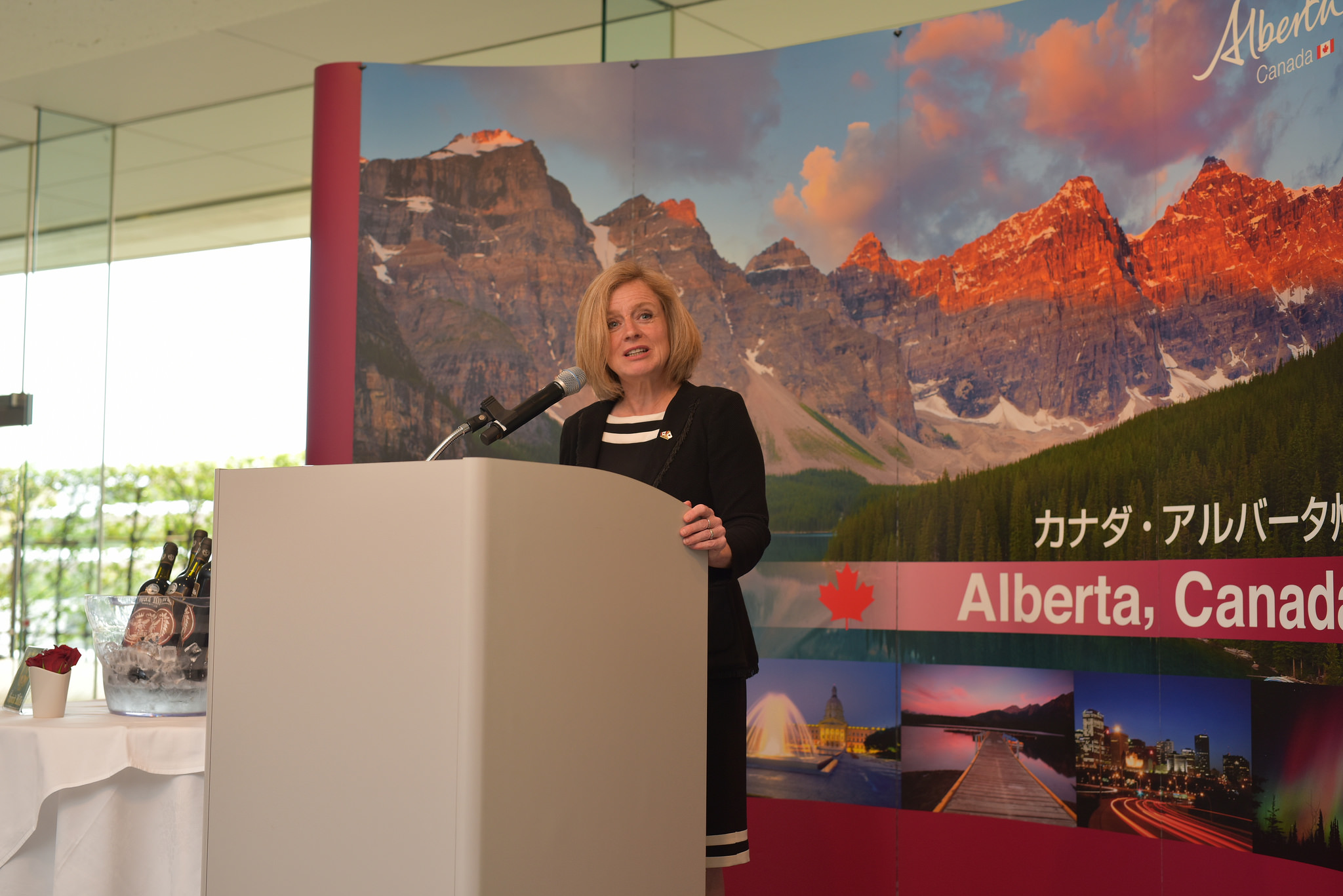If a majority Liberal government in British Columbia would have been mildly good news for Rachel Notley’s Alberta NDP, and a majority NDP government would have only been mildly bad, a Liberal minority propped up by the B.C. Green Party may be the worst of all possible likely options.
As of this morning, Premier Christy Clark’s Liberals had been elected in 43 of the province’s 87 ridings — one short of a majority — the NDP led by John Horgan had 41 seats, and the Green Party led by Andrew Weaver held the balance of power with three seats.
While it will probably take a few days of recounts to figure out what actually happened in yesterday’s election out here on Canada’s western edge — something we Canadians aren’t used to — it looks very much as if what could be the worst-case scenario from the Alberta NDP’s perspective is what, in fact, is unfolding.
It’s potentially bad news for the Alberta NDP because, in their heads if not their hearts, officials in Premier Notley’s government already knew they could work with Premier Clark on the pipelines-to-tidewater file, success on which is apparently politically essential in Alberta whether or not world market conditions actually justify development of such infrastructure.
So while Albertans who bleed orange may have hoped atavistically for an NDP government in Victoria, a Liberal government likely meant smoother sailing when it came to making the argument that seeking “social license” for oil sands exports via pipeline was working, thereby creating a chance to persuade Alberta voters that only the NDP can ensure a healthy export environment for Alberta.
An NDP government in Victoria, by contrast, would have been more problematic, with Horgan sounding decidedly unsympathetic to Alberta’s pipeline aspirations during the campaign.
Still, at least in such circumstances Alberta Dippers shared a language and tradition with their B.C. brethren, as well as many friendships and common goals that might have made compromise on oil exports possible. On other files, two such governments could have worked together effectively, and having a second NDP provincial government in Canada would also have relieved the Notley government of the pressure of being the lightning rod for opposition to social democratic government in Canada.
But a Liberal government propped up by support from three Green members? Clark — or whoever leads the Liberals as soon as she’s stepped aside as leader — will not compromise on some things, but, let’s face it, the Alberta premier’s priorities, or Liberal Prime Minister Justin Trudeau’s for that matter, are not likely to be at the top of Clark’s post-election to-do list.
So it does not bode well at all for the Alberta NDP if nothing changes in the numerous recounts that are bound to follow yesterday’s narrow election decision in B.C. — as most likely will happen.
Indeed, it’s unlikely but not impossible, given the enmity up to now between the two parties, that an NDP-Green coalition could emerge in the event Clark flatly rejects Green Leader Weaver’s core demand for getting corporate and union donations out of election financing laws. Weaver has already hinted in his first post-election remarks — by omission, at least — that the Greens’ demand for meaningful electoral reform, viz., some form of proportional representation, is now not as high a priority as he made it sound before the election.
But if the recounts result in no changes, the B.C. Greens will have to answer some immediate and serious strategic questions.
Minority governments are inherently unstable and if the B.C. government falls, the Greens’ success last night and likely lack of success implementing a green program in partnership with a development-oriented right-wing government will probably have two impacts. First, many Green supporters may be disillusioned by the compromises inherent to coalition situations in which one partner is much smaller than the other. Second, the NDP will have a powerful argument to make to soft Green supporters that all voting Green accomplished for them was to re-elect a government hostile to green principles. A glance at the vote splits in many ridings shows this to be so.
Weaver, of course, can comfort himself with the thought that not very long ago, Notley too was a member of a caucus small enough (to risk a legacy metaphor) to meet in a telephone booth.
Someone else who may soon face an unusual challenge is B.C. Lieutenant Governor Judith Guichon, who could have some vice-regal work to do for once if the several recounts expected result in changes. Note that this is unlikely, as recounts usually reinforce the initial result.
Unless the numbers align more favourably after the recounting and the B.C. NDP can work out a coalition deal with the Greens — which is not likely more because of sentiment than policy differences — Guichon is almost certain to ask the Liberals to form a government first, even if the seat count edges a little closer in the next few days.
The Liberals, after all, led slightly in the popular vote, formed the previous government and are likely to have marginally more seats once the dust has settled.
Meanwhile, back in Alberta, whether or not Rachel Notley faces an optimal situation to the west, we can assume she will continue to conduct business in her usual sunny and coolly competent manner.
As for Alberta’s conservative Opposition parties, they will continue to have no ideas at all of how to overcome hostility in B.C. to Alberta’s infrastructure demands other than blunt force, or about low world petroleum prices beyond fatuous claims about the superiority of Alberta oil. Whether or not that will be good enough for Alberta voters in 2019 remains to be seen.
This post also appears on David Climenhaga’s blog, AlbertPolitics.ca.
Image: Flickr/premierofalberta
Like this article? Please chip in to keep stories like these coming.




